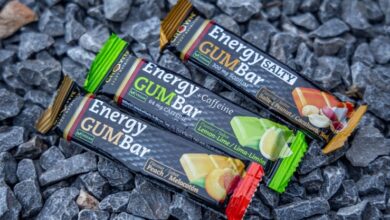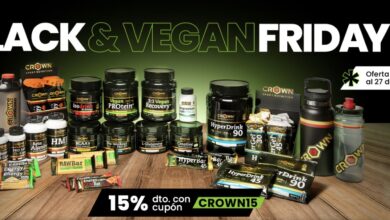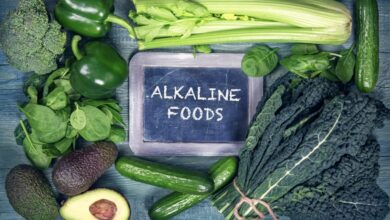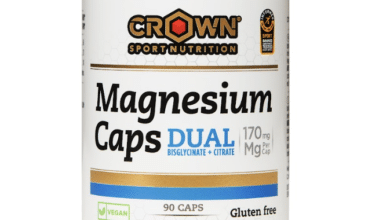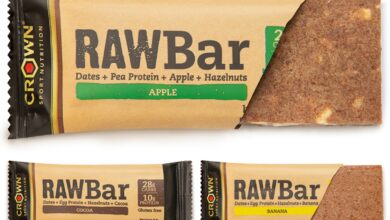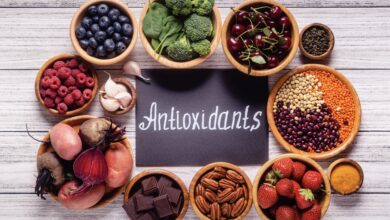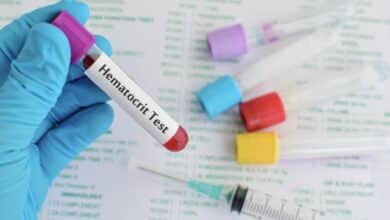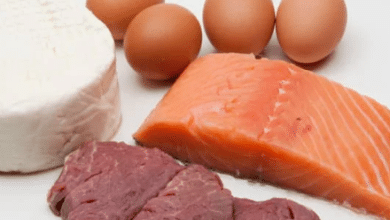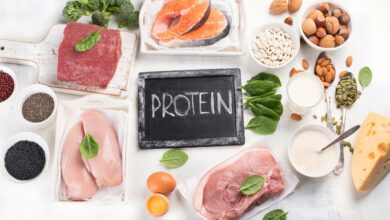New omega-3 PRO from Crown Sport Nutrition

Crown Sport Nutrition launches the first of its products in the health line for athletes, the Omega-3 PRO:
- Fish oil pearls with 2600 mg of Omega-3 in TG form, per 4 pearl serving.
- 2000mg of DHA and 400mg of EPA
- High quality Solutex® raw material, with the absence of heavy metals, minimal taste and fishy reflux.
- With Informed Sport anti-doping certificate
- Bottle format 120 softgels at €29,95 RRP
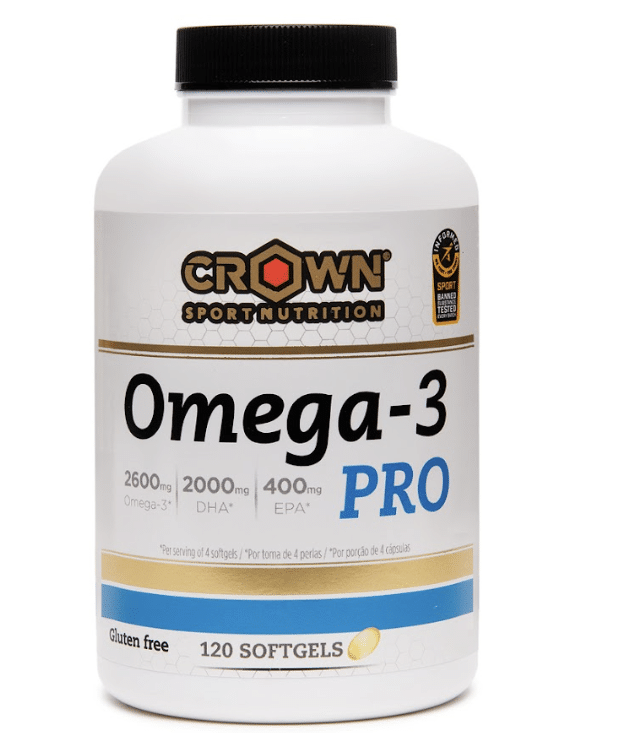
Omega-3 supplementation: what are its benefits?
Omega-3 fatty acids are a family of polyunsaturated essential fatty acids (PUFA), which are divided into three main types:
- 1) alpha-linolenic acid (ALA)
- 2) Eicosapentaenoic Acid (EPA)
- 3) docosahexaenoic acid (DHA)
El ALA found in nuts, seeds and seed oils (eg flax or chia), while EPA y DHA It is found in oily fish, crustaceans and algae. Besides, the fish oil supplementation (rich in omega-3 and especially in DHA), emerges as a potential tool to maximize the physiological effects of these fatty acids.
What are the health benefits of omega-3 supplementation?
The health benefits derive primarily from the anti-inflammatory and antioxidant actions of its lipid mediators1.
Therefore, supplementation with omega-3 could be effective against management and treatment of various inflammatory or autoimmune diseases (eg rheumatoid arthritis, Crohn's disease, psoriasis, lupus erythematosus or multiple sclerosis or autoimmune thyroiditis among others)2,3, Metabolic diseases (eg diabetes) and cardiovascular4, 5.
In addition, omega-3 supplementation is useful against neurodegenerative diseases, reducing neuroinflammation and age-related cognitive decline6.
Specifically, supplementation with high amounts of DHA has positive effects in terms of the normal maintenance of brain structure.6, less neurodegeneration7 and improvement in cognitive function8.
And what benefits could it have in endurance athletes?
We must not ignore the very fact that omega-3 supplementation could improve all health parameters previously mentioned in athletes (eg cardiovascular, inflammation, cognition, etc.).
But its benefits in high-performance situations go much further.
Specifically, resistance training alters muscle omega-3 levels.9Therefore, the dietary requirements in these athletes could be higher10.
Omega-3 supplementation could help in the Muscle recovery10, decreasing exercise-induced muscle damage11, especially in high intensity and long duration exercises
This improvement is due to: 1) a decrease in the inflammation; 2) a better answer immune10; and 3) a minor cell damage (eg lipid peroxidation or oxidative stress)10.
Specifically, omega-3 supplementation has been shown to improve recovery-related variables (eg inflammation, oxidative stress, muscle damage, etc.) in endurance athletes.12.
On the other hand, omega-3 supplementation triggers a better vasodilator and cardiovascular response after exercise (eg by improving the nitric oxide response)10, with a positive effect on physiological adaptations, especially to resistance training.
In addition, omega-3 supplementation (with adequate amounts of DHA) could enhance the immune system (due to the production of different lipid mediators), reducing the risk of diseases and injuries in athletes12.
This being essential since the immune system is weakened in resistance disciplines, due to the large volume of training.
Finally, omega-3 supplements with optimal levels of DHA improve the cognition, the memory, mood and reaction time in athletes10.
Therefore, knowing the importance of concentration in performance, especially in long-term disciplines (eg aerobic disciplines), the use of these supplements could be very useful.
Conclusion
In short, an omega-3 supplementation could have beneficial effects both at the level of health and performance.
Author
Lucas Jurado Fasoli. Dietitian-Nutritionist and Predoctoral Researcher at the Sports and Health Mixed University Institute, University of Granada
References:
-
Ostermann, A.I. et al. Plasma oxylipins respond in a linear dose-response manner with increased intake of EPA and DHA: Results from a randomized controlled trial in healthy humans. American Journal of Clinical Nutrition 109, 1251–1263 (2019).
-
Hahn, J. et al. Vitamin D and marine omega 3 fatty acid supplementation and incident autoimmune disease: VITAL randomized controlled trial. Bmj 376, (2022).
-
Simopoulos, AP Omega-3 fatty acids in inflammation and autoimmune diseases. J Am Coll Nutr 21, 495–505 (2002).
-
Djuricic, I. & Calder, PC Polyunsaturated fatty acids and metabolic health: novel insights. Current Opinion in Clinical Nutrition and Metabolic Care vol. 25 436–442 (2022).
-
Hu, Y., Hu, FB & Manson, JE Marine omega‐3 supplementation and cardiovascular disease: an updated meta‐analysis of 13 randomized controlled trials involving 127 participants. J Am Heart Assoc 477, e8 (013543).
-
Devassy, JG, Leng, S., Gabbs, M., Monirujjaman, M. & Aukema, HM Omega-3 polyunsaturated fatty acids and oxylipins in neuroinflammation and management of Alzheimer disease. Advances in Nutrition vol. 7 905–916 (2016).
-
Sala-Vila, A. et al. DHA intake relates to improve cerebrovascular and neurodegeneration neuroimaging phenotypes in middle-aged adults at increased genetic risk of Alzheimer disease. Am J Clin Nutr 113, 1627–1635 (2021).
-
Swanson, D., Block, R. & Mousa, SA Omega-3 fatty acids EPA and DHA: health benefits throughout life. Advances in nutrition 3, 1–7 (2012).
-
Helge, JW et al. Training affects muscle phospholipid fatty acid composition in humans. (2001).
-
Lewis, NA, Daniels, D., Calder, PC, Castell, LM & Pedlar, CR Are there benefits from the use of fish oil supplements in athletes? A systematic review. Advances in Nutrition 11, 1300–1314 (2020).
-
Lopez-Seoane, J., Martinez-Ferran, M., Romero-Morales, C. & Pareja-Galeano, H. N-3 PUFA as an ergogenic supplement modulating muscle hypertrophy and strength: a systematic review. Crit Rev Food Sci Nutr 62, 9000–9020 (2022).
-
Thielecke, F. & Blannin, A. Omega-3 fatty acids for sport performance—are they equally beneficial for athletes and amateurs? A narrative review. Nutrients vol. 12 1–28
There are no previous results.







